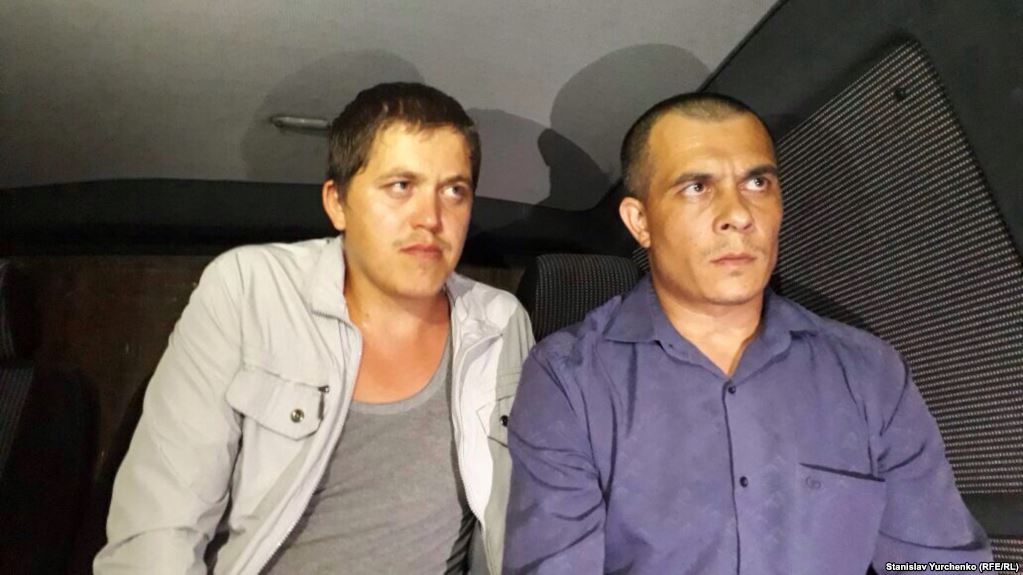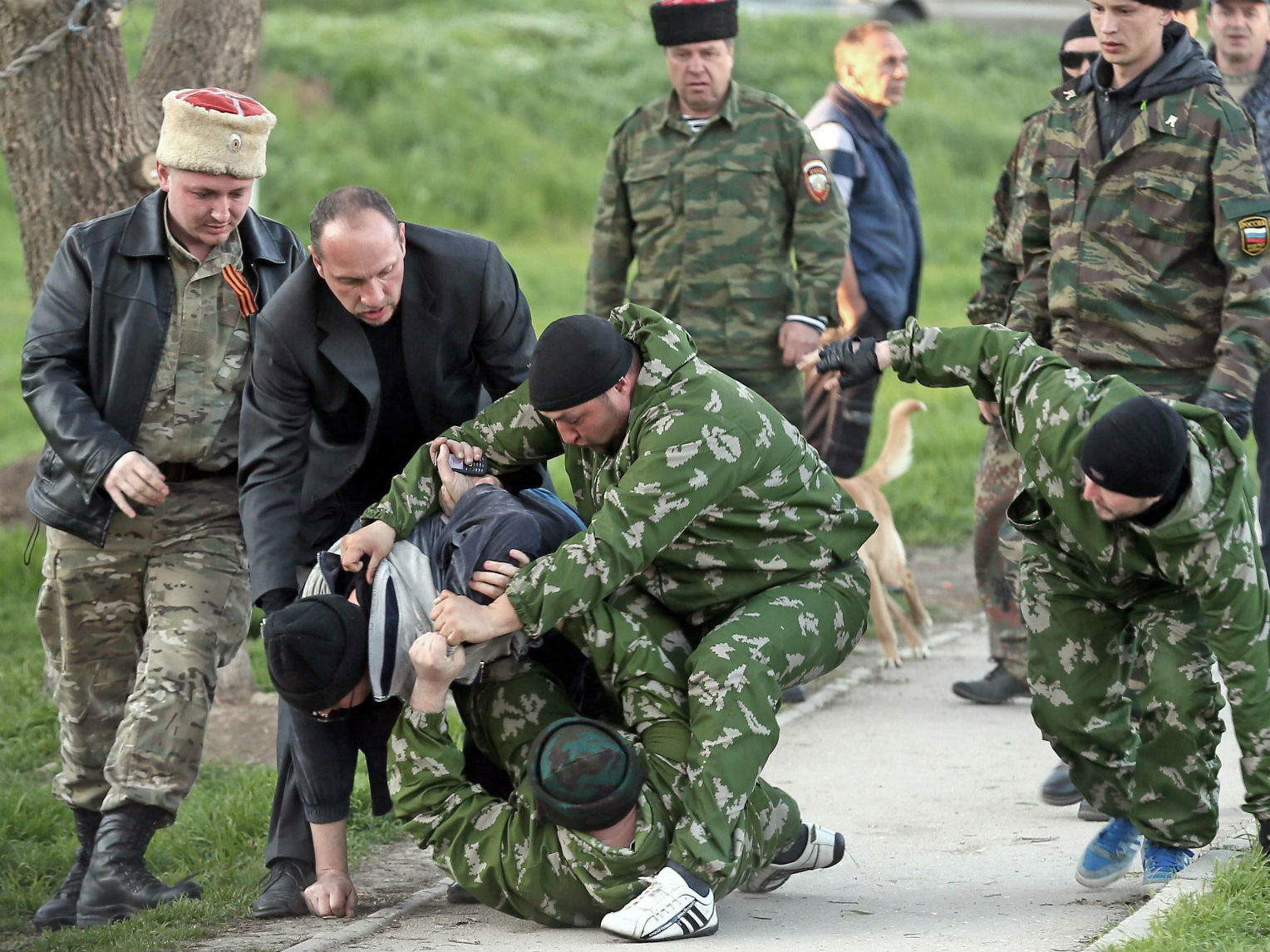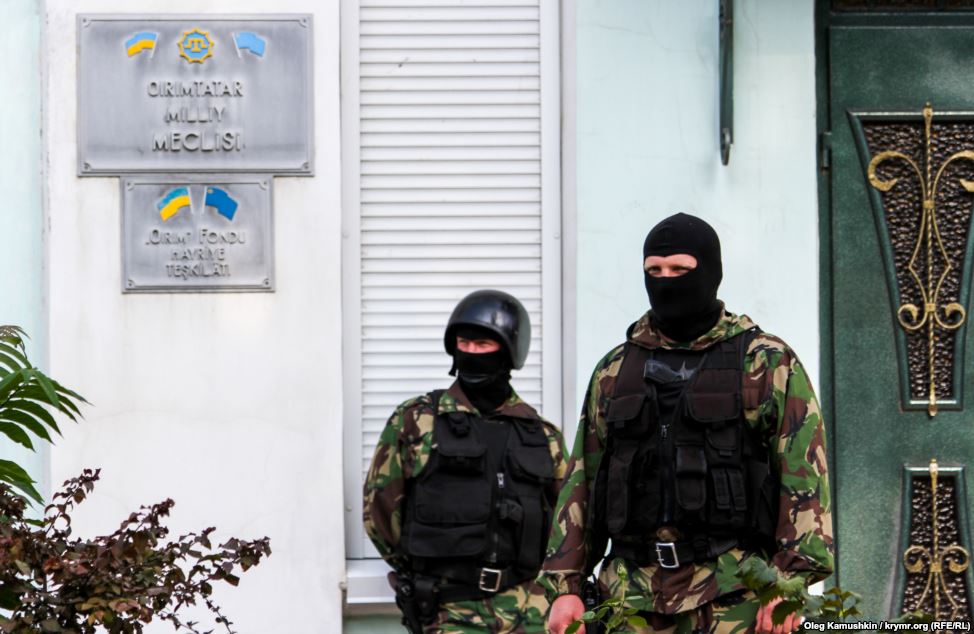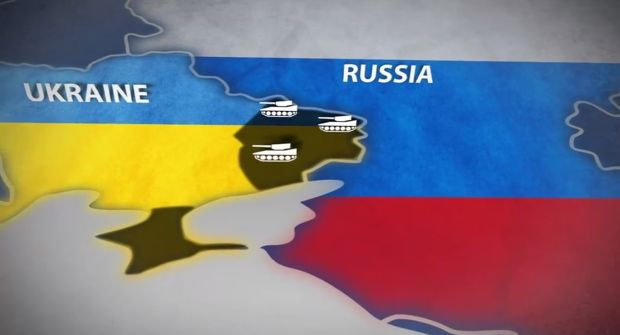The process of Crimea’s annexation by Russia, lasting merely a month, began a year ago. This came straight after the killing of dozens of protestors at the Institutska street in Kyiv and the following flight of ex-President Victor Yanukovych from Ukraine. Everything that had happened from the end of February until mid-March of last year, became a precursor to military activities in Donbas, in which Russia, just like in Crimea, is taking an active part. And although the concept “hybrid war” started to come up when assessing the events in eastern Ukraine, this term is also correct for describing what happened in Crimea.
The Crimean-Tatars, who came back to their motherland after the deportation, after half a century of fighting against the totalitarian Soviet regime, have yet again found themselves under a totalitarian regime which is worse than the Soviet one. And they are forced to leave their motherland all over again
One of the leaders of the Crimean Tatar people, Mustafa Dzhemilev, remembers what happened a year ago in Crimea:
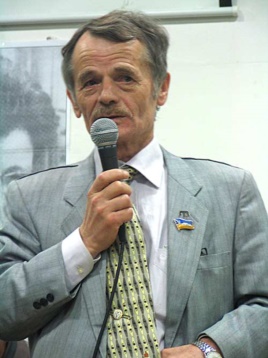
– The “green men,” or, in other words, Russian saboteurs, first appeared in Sevastopol, where they began seizing administrative buildings, and four days later the same thing started happening in Simferopol. There were 110 of them. After this appeared tanks, helicopters, APCs, columns of soldiers. This happened later. At that time Ukraine was asking – in order to avoid bloodshed – to not put up any resistance. There were high expectations that the international community would not allow for this international delinquency in the 21st century. But nothing happened. The Mejlis of Crimean-Tatar people was appealing to the UN, we were asking for the deployment of peacekeeping troops, but this too was fruitless, as the aggressor-country has the right to veto in the UN Security Council. The only thing they did was bring the discussion to a meeting of the UN General Assembly, where an overwhelming majority of the countries supported Ukraine, began imposing some sanctions. The sanctions, of course, do harm Russia’s economy but so far they haven’t led to the de-occupation of Crimea.
– You are saying that the matter involved 110 saboteurs. What is known to the Ukrainian deputies about these people today?
– 70 people seized the Council of Ministers building, 40 people – the parliament. Of course, if the Ukrainian side would have been well-prepared – there was a subdivision of “Alfa” located not far away – they [the saboteurs] could have been surrounded and neutralized. But Ukraine wasn’t doing anything. And only afterwards we found out that all the subdivisions were infiltrated by Russian reconnaissance, their people were everywhere, and they weren’t carrying out the orders they were given. It was said that we weren’t complying with the February agreement [concerning the resolution of the political crisis in Ukraine – a document, signed on February 21 2014 between the former president of Ukraine Viktor Yanukovych and the leaders of parliamentary opposition, through the intermediary of the EU representatives – ed], which is why Russia was forced to take steps, so to speak. But this is an absolute lie! Firstly, the February agreement was signed amongst the inner political forces of Ukraine itself, while Russia and other countries were present as observers. It isn’t a question of a breach of agreements between Ukraine and Russia, and in no way is it a pretext for an intrusion into our country, says Mustafa Dzhemilev.
February 23 could be considered as a beginning of the operation on forceful annexation of Crimea to Russia, when the creation of a local people’s council was announced at a rally under the Russian flags, which was to be headed by a Russian national Oleksii Chalyi. At the same time, checkpoints with Czech hedgehogs and columns of armored warfare with Russian numbers appeared at the entrance to Sevastopol. Back then, Russian APCs left the military units, which was a breach of agreement between Russia and Ukraine concerning the stationing of the Black Sea fleet on Ukrainian territory.
The following day, Mykhailo Zurabov, the ambassador of Russia to Ukraine, is recalled. And on February 25 a Russian flag appears on the Verkhovna Rada building [Crimean parliament] for the first time. It was hung there by the participants of the demonstration, organized by pro-Russian cossack organizations, which was also joined by the members of the “Crimean front” movement, the existence of which was unknown until that moment. [The crowd] gathered at the Verkhovna Rada building was urging the speaker Vladymyr Konstantynov to convene an extraordinary parliament session, to pass a resolution on insubordination to the Ukrainian central government, to announce a referendum on independence, and to direct an appeal to the government of Russia. These statements and the appearance of Russian armored warfare on the outskirts of Sevastopol became grounds for calling an extraordinary session of the Security and Defense Council of Ukraine, following which criminal proceedings on the charges of separatism were initiated.
On February 23 and 26 demonstrations by the supporters of Ukraine’s unity took place in Crimea, which were organized by the Mejlis of Crimean-Tatar people. But as early as on the night of February 27, the buildings of Crimean parliament and the Council of Ministers were already occupied by armed people, Ukrainian flags were taken down from the flagstaff and Russian ones were hung in their place. On that day, at the extraordinary session of the Supreme Council of Crimea, the government was dissolved, the decision to conduct a referendum was reached, and a new head of government was appointed – Serhiy Aksionov, leader of the Russian Unity party.
Shortly before the voting, armed people who occupied the building seized mobile phones from deputies, part of the parliamentarians weren’t even present in the building at that time, journalists weren’t allowed into the chamber, hence it still is impossible to check how many votes one or another decision had gathered. Yet again support was given by the Russian armed forces: 7 APCs of the Russian Black Sea Fleet had left the military unit and headed in the direction of Simferopol. They were noticed by journalists in the area of Ukromne settlement [a village in the Simferopol region]. The movement of Russian heavy armored warfare wasn’t agreed upon with the Ukrainian authorities either.
In three days, well-equipped and armed servicemen bearing no insignia appeared on the streets of Crimean towns and near the Ukrainian military units. Contrary to the allegations made by Russia at the time, that no soldiers from the Russian army were involved, the subsequent events leave no doubt: a military operation on annexation of the Crimean peninsula by Russia was underway.
All possible measures are being undertaken to compel the Crimean-Tatars to become obedient Russian citizens. Since it appears highly unlikely, the main stakes are on creating conditions, which would force them to leave the Crimean territory
Mustafa Dzhemilev tells us about the changes that occurred in Crimea after the peninsula’s annexation by Russia:
– All possible measures are being undertaken to compel the Crimean-Tatars to become obedient Russian citizens. Since it appears highly unlikely, the main stakes are on creating conditions, which would force them to leave the Crimean territory. At the same time, large numbers of ethnic Russians are being brought in from the Luhansk and Donetsk oblasts, and are being settled close to the Crimean Tatar villages – seemingly, in case of any possible conflicts. Raids in search of the so-called banned literature and weapons are being carried out. In fact, the term “banned literature” is a novelty for Ukraine, we didn’t know what it was a while back.
Under Russian rule, Crimea has a list of banned literature – a large list of approximately 2600 book titles, which are constantly being added, and which you are not allowed to read and store
It is a large list of approximately 2600 book titles, which are constantly being added, and which, as it turns out, you are not allowed to read, not allowed to store, it constitutes a crime. Each person who reads is at risk of being searched, while he might not even be aware that he owns banned literature. Above all, people are fear-ridden about people going missing (initially a person disappears, and then he is usually found dead). I think, mandatory conscription into the Russian armed forces would contribute to the further exodus of Crimean Tatars from their land.
If you aren’t registered, you pay a large fine, then a criminal case is initiated and you are faced with up to 5 years of incarceration. I don’t know a single Crimean Tatar who would have wanted to serve within the Russian army. Hence, I fear that they will be moving: either looking for a job or joining the Ukrainian army. But in this case, their family members would be victimized. Therefore, there is now a tendency to leave and to bring along one’s family members. So it turns out that, the Crimean Tatars, who came back to their motherland after the deportation, after half a century of fighting against the totalitarian Soviet regime, have yet again found themselves under a totalitarian regime which is worse than the Soviet one. And they are forced to leave their motherland all over again.
– During the winter session of the Parliamentary Assembly of OSCE many delegates were saying that the residents of Crimea are deprived of the right of choice, such circumstances are created, by which they are forced to obtain a Russian passport, even if they don’t want it. In the case of Crimean-Tatars, how many people have decided, despite the difficulties, to retain the Ukrainian passport?
– In order to retain Ukrainian citizenship you had to write quite a degrading letter of application, consisting of two clauses. The first one was that the signatory acknowledges that from now on Crimea is a an integral part of the Russian Federation, and the second one, that the signatory acknowledges that he is henceforth considered as a foreigner on the Crimean territory, with all of the ensuing consequences. To envisage a Crimean Tatar who would write that he is a foreigner on his own land is simply inconceivable. On the other hand, if you don’t get a Russian passport, then you don’t have the right to send your kids to school, you don’t have the right to undergo treatment at a public hospital, in short, you barely have any rights.
Which is why our position was as follows: let our fellow countrymen take these passports, as it was in the occupied Germany back in the days, when Ausweis were drawn up upon the need of traveling from one place to another. Especially, since according to the Ukrainian law, coercion into assuming citizenship from another nation will not result in the loss of Ukrainian citizenship. Which is why the people who left to the mainland can renew their Ukrainian passport, if it had been taken away from them. But even someone who has obtained a Russian passport and is continuing with his studies, for example, in an institute of higher education, perfectly understands, that his prospective diploma will not be accepted by anyone, except for Russia. Hence, we fear that if the de-occupation of Crimea will not take place in the near future, the flow of refugees would be significantly greater.





